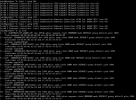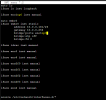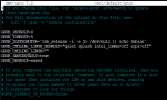Moved to Proxmox 8.2 yesterday and had a VM crash just now.
[deletia]
Supermicro IPMI is reporting the memory as aok. Host has been solid on 6.5.x for months.
This is a quad socket host with 4th gen Intel's.
With all the talk about lockups etc in this thread, im starting to question if 6.8.x was a good move.
I feel like we are compromising bleeding edge for stability with updates as of late.
That's a valid concern, but the odd thing about all this is that the Linux 6.8 kernel is the backbone of Ubuntu's current LTS release. It's not really supposed to be bleeding edge.
The 6.5.x kernel is now no longer officially supported by Ubuntu, so staying on it would have its own problems long term given that Proxmox's kernel development is tied to Ubuntu's kernel development cycle.
I'm not really sure what to make of this, but given reports of issues with basic functionality in Ubuntu 24.04 for some users, it seems like it's not just a Proxmox thing.
It sounds like kernel 6.8, 6.9, and probably 6.10 and 6.11 are all pushing or about to be pushing some major changes to how Linux works deep under the hood as far as how it talks to CPUs and GPUs and other low-level hardware, which is all to the good, but the reality is we might just be going through a rocky phase of hardware compatibility.






